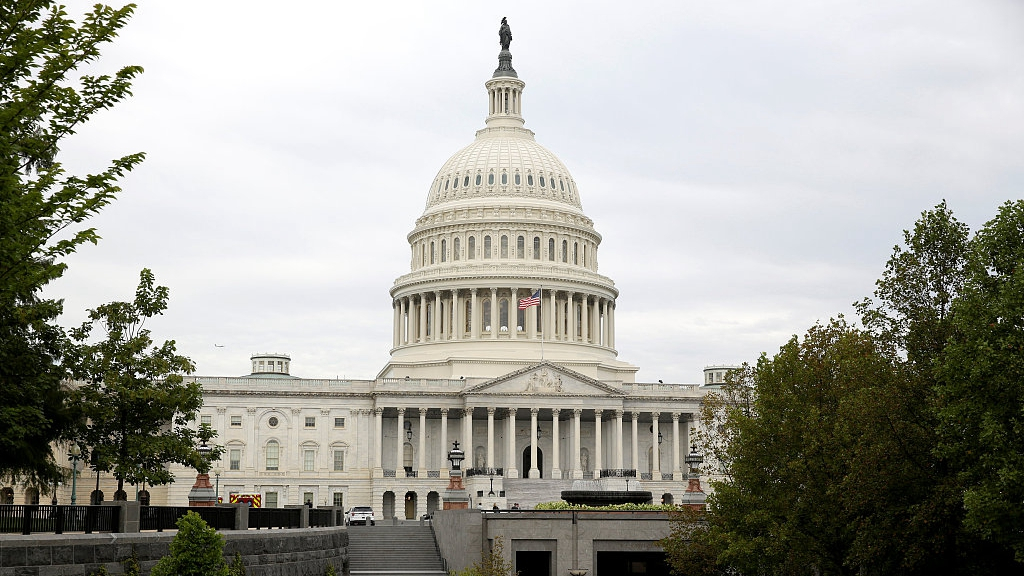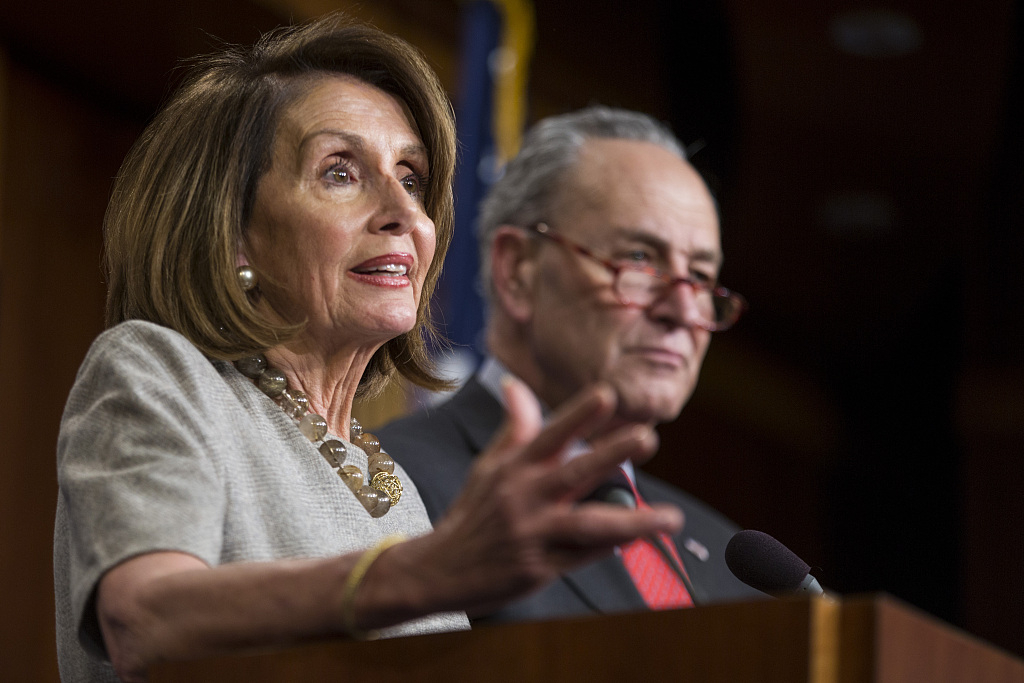
Editor's note: Tom Fowdy is a British political and international relations analyst and a graduate of Durham and Oxford universities. He writes on topics pertaining to China, the DPRK, Britain, and the U.S. The article reflects the author's opinions, and not necessarily the views of CGTN.
On Thursday afternoon, the U.S. Senate unanimously passed what it called the "Hong Kong Autonomy Act," an extension of the existing "Hong Kong Human Rights and Democracy Act." It mandates the penalization of businesses and financial institutions that appear to support individuals who have been blacklisted by the White House administration for deeming to "erode Hong Kong's autonomy."
U.S. President Donald Trump had reportedly intervened to attempt to block the bill's passage, but now it goes to the House of Representatives, where it is highly likely that Nancy Pelosi will put it to a vote in the coming weeks.
The act may seem intimidating, but it is not a game changer. It is questionable to what extent it would be fully applied, which hinges on the act before it. For all the Trump administration's growing anti-China rhetoric, the President is personally unwilling to push significant boundaries on Hong Kong and deeply engross himself in territorial issues.
As a result, his attitude to these considerations has been apathetic at best, and he views Congress as intruding his constitutional rights to the Presidency on these matters. The impact of the act therefore remains negligible at best, with the administration unlikely to push deep sanctions on Hong Kong.
There is significant evidence Trump does not wish to push hard on Hong Kong. His concern for trade and economic related issues supersede his interest in territorial struggles. For the vast majority of the unrest in the city a year ago, Trump made very little comment and focused on trade talks.
When Congress forced upon him the "Hong Kong Human Rights and Democracy Act," he signed it with a low-key statement which emphasized that the bill intruded upon his personal rights as the executive to shape the nation's foreign policy. When the Xinjiang bill also came in a week ago, he said the same thing and openly stated that such sanctions were "advisory" and not mandatory.

Speaker of the House of Representatives Nancy Pelosi (L) and Senate Minority Leader Chuck Schumer (R) are strong supporters of the Hong Kong Human Rights and Democracy Act. /VCG
Speaker of the House of Representatives Nancy Pelosi (L) and Senate Minority Leader Chuck Schumer (R) are strong supporters of the Hong Kong Human Rights and Democracy Act. /VCG
The administration nevertheless was constrained into reacting to the situation concerning the imposition of China's national security bill. In this instance, Trump certainly did state the United States would consider sanctions related to the matter.
However, they appear to have been meted on a "wait and see approach" which hinges upon the extent the White House perceives the city's autonomy is being violated by the new bill upon its imposition, if it all. Despite all his tough talk, U.S. Secretary of State Mike Pompeo also stated that in regard to economic privileges and others the U.S. would treat Hong Kong to the same extent that it is "treat as another Chinese city," indicating that potential retaliation would be proportional, than excessive.
Given these circumstances, it is obvious that the White House will treat the new "Hong Kong Autonomy Act" in a similar light, with Trump expressing indifference than enthusiasm towards it and deeming any measures as "advisory."
The act is hardly revolutionary as it merely aims to complement potential sanctions which ought to be imposed by the previous bill first, of which the administration's actions upon still remain unclear. The new act of course would cause potential problems for American businesses and financial institutions too.
Therefore, it is questionable if the White House is prepared to push that far. Even at the peak of anti-China sentiment in the United States, the political will to do so is minimal.
Therefore, whilst this act is frustrating and yet again Congress stoking up trouble, it is not a serious game changer to the situation in Hong Kong. The administration has many disputes it is pushing against China, yet this has not been a priority. Trump knows this is not worth the fight and his actions have been symbolic at best, and China in turn will prepare necessary countermeasures which would be employed in any contingency to defend its national sovereignty.
Thus, whilst passage is highly likely, the outcomes are almost certainly minimal from the White House that openly believes these sanctions are at best "advisory."
(If you want to contribute and have specific expertise, please contact us at opinions@cgtn.com.)